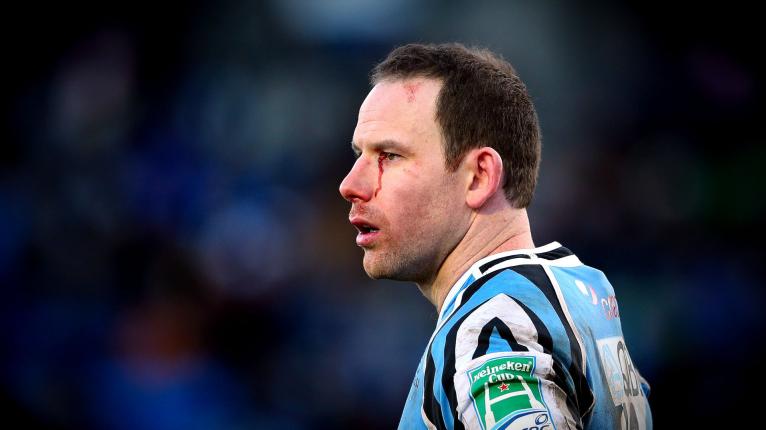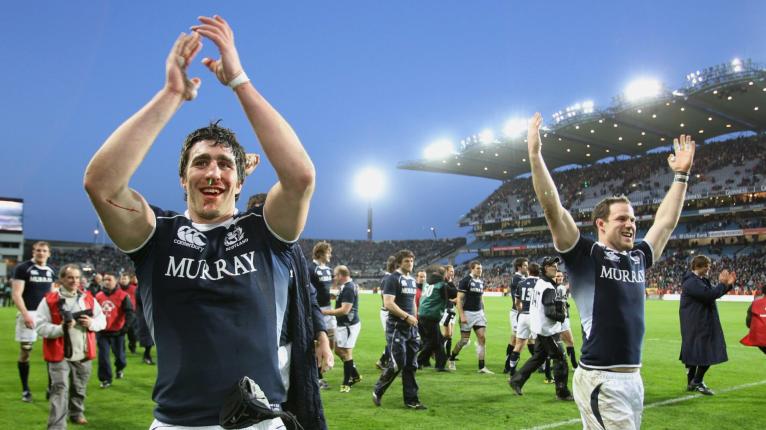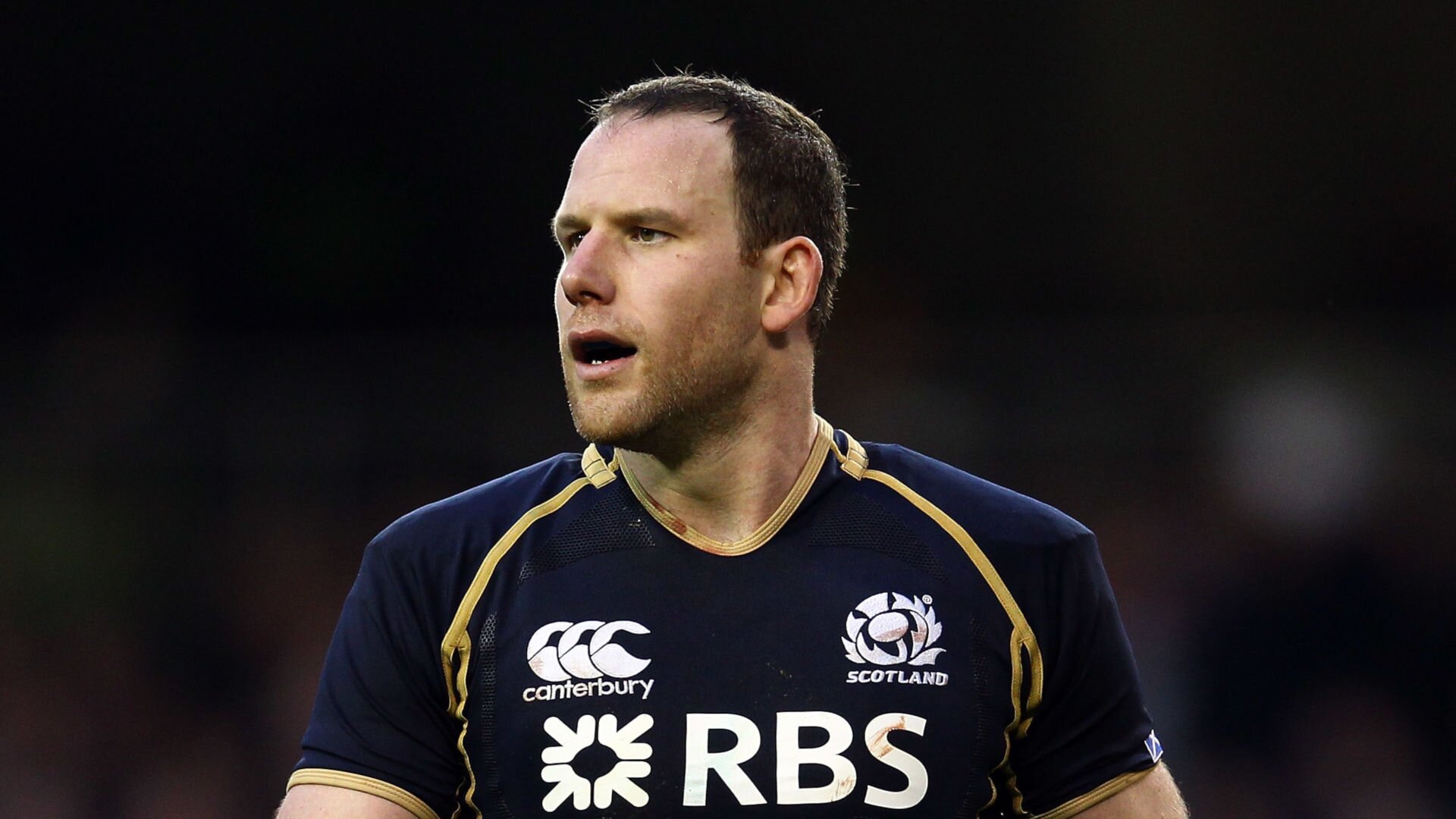How the 'rugby bubble' very nearly destroyed Graeme Morrison

Graeme Morrison sat listless and tortured in his parents’ Hong Kong apartment, gazing out of the open balcony doors and contemplating the drop to the tarmac hundreds of feet below.
Poisonous thoughts careered around his head like dodgems, a relentless, dizzying kaleidoscope he could not escape. The bustling centre was weary of rugby failing to offer the joy he craved, fed up of the crap people wrote and said about him, reeling from the anguish of a particularly sour break-up.
In the spring of 2010, he had helped Scotland roar to a booming victory at Croke Park, and yet weeks later, in the here and now, he felt utterly wretched.
After matches, he would bury himself beneath a towel and weep in the changing rooms. His team-mates and his closest friends had no idea what to do, much less the coaches who were oblivious to his suffering and kept sending him out to battle severely depressed.
For Glasgow and for Scotland, at home and on the road, there was blackness wherever he turned.
“My brain was just constantly chattering about everything,” he says. “About rugby, about that relationship that ended, about life, about going back to my flat in Glasgow to live alone, where all I had was my rugby but I didn’t want to play because it was making me feel miserable.
“It just got to the point where after several days of not being able to sleep, not being able to focus on anything apart from those negative thoughts, all I could think was, this has to stop. This has to stop somehow.
“I was sitting having dinner with my parents, glazed over, not taking in anything that they were saying. I looked out the balcony and thought, I could literally jump off this right now. It was a fleeting thought but it was definitely very powerful. It still feels quite raw now.”
The torment he would wreak upon his loved ones kept Morrison from leaping that day. He stayed silent about his illness for seven years since the last of his 35 caps before feeling sufficiently at ease to lay it bare. He is able to do so now partly because he is a highly successful chartered accountant, doting father and husband and thoroughly content bloke, but also because he sees it as his duty to help those mired in that same swamp.
Rugby, he says, still hasn’t got a grip of how to tackle mental illness. He has friends toiling alone who feel abandoned by the clubs they sweated and bled for. He knows of young Scottish players dealing with shades of their own despair, and he can reflect with remarkable candour and an even more remarkable lack of malice on the archaic outlook that pervaded the sport in its recent past.
“I remember phoning a coach one week in tears and saying, ‘I cannot play this week, I just can’t’,” Morrison says.
“That coach told me, ‘you’re playing, and everything will be fine’. I just really did not want to be there. That was one particular game where I was in the changing rooms with the towel over my head crying. He didn’t really know how to deal with me.

“I remember lying in the physio room at Glasgow one day, one of the support coaches came in, looked at me, and said, ‘what the fuck is wrong with you?’ I told him I was miserable. And he just burst out laughing and walked out the room. That was the mentality.
“Even among good friends, one day a team-mate saw me take an antidepressant in between sessions and asked what I was doing. I just needed those to keep me going. He was like, ‘just stop being so fucking stupid, mate, just cheer up, snap out of it’. It was ignorance, and I don’t hold anything against players or friends who took that view because they just didn’t know.”
Morrison is at pains to stress how much he loved the game and cherished the career it gave him, but by his own admission, he became hopelessly trapped in the rugby bubble. Get up, train, go home, repeat. No outside interests, no career planning, no hobbies. Subconsciously, he began to make safer and safer calls on the pitch, so paralysed had he become by a fear of failure.
“A lot of players need to understand that being a rugby player doesn’t define who you are as a person. It really doesn’t. We really need to get over that.
“And that’s coupled with the pressures of being a Scottish rugby player, where you’re exposed to our subconscious national tall poppy syndrome. We don’t like anyone around us getting good at anything; we like to chop them down instead of celebrating them.”
The keyboard-wielding battalions were never likely to warm to a centre whose job was to barrel over the gain line and hoover up yards. Morrison got a shoeing when he passed the ball and a shoeing when he didn’t.
His old pal Johnnie Beattie, who helped him conquer the demons in his darkest hour, retired recently, prompting reruns of his glorious Croke Park try after steaming on to Morrison’s inside ball. This is almost ten years ago now, yet still, there was a tragic case who tweeted Morrison directly, jibing that the most astonishing thing about the move wasn’t Beattie’s colossal finish, but the sight of the centre throwing a pass.

He once found himself defending an absent team-mate from a drunken buffoon in his own kitchen. The idiot’s reasoning was that since the player in question was “shit at rugby”, he must be “a fucking wanker”.
“That guy plays for his country,” Morrison replied. “Have you ever thought of doing that, or even been anywhere near achieving it? No? Well you must be worse than him at rugby, and by your own logic, you’re an even bigger fucking wanker.”
Then there was a satirical piece on a well-known fan site that put Morrison top of their list of the “most-average Scotland backs of the mid-2000s” and poked fun at his new career path.
“In 2018, I was named as one of the top 35 chartered accountants under 35 and someone has written an article about, first of all, how shit my rugby was, but then how shit my life after rugby is,” Morrison says.
“Going from rugby to doing what I do is the hardest thing I’ve ever done; I’ve never worked so hard in my life. But someone still finds the time to write about that. Now I can just laugh it off but it still affects my family. My little brother in London saw it. My wife sees that and she’s in tears.
“Attacking people from behind a keyboard is weak, and it’s an uneducated guess because, ok mate, here you go, you take the whistle, you coach us this week and you show us what you’d do differently. And 99% of them would shit themselves and get out of that situation as fast as they could.”
You hear today’s players talk of being drawn inexorably to searching their own names on social media in an almost morbid need to see what people make of them. There’s no happiness can be found through that anguished routine. There might be an avalanche of praise, but it’s the one spot of bile that sticks with you.
What about life at the lower end of professional rugby during the pandemic, away from the spotlight and ‘reduced’ six figure salaries? @DanielKenny7 ? talks to @heagneyl from his flat ???https://t.co/S4hlVNy5Gw
— RugbyPass (@RugbyPass) April 12, 2020
Ask Morrison to suggest how many young men might be suffering from mental illness and he guesses “between five and 10” per professional squad. This is anecdotal and completely unscientific, but it is informed opinion.
“If they did an anonymous study, if players were honest and didn’t put on a facade, because the bravest thing is saying you need help, I believe they’d be unpleasantly surprised,” he says.
“The fact that rugby is becoming bigger, social media is becoming bigger, the pressures and the money and the science and investment behind it, there’s just no way mental health could be less of an issue now.
“I got fantastic help from the doctors at Scottish Rugby during my toughest years. I don’t know specifically what is being done in the Scottish game now, but I was contacted by someone at Glasgow after I first spoke about my own struggles last month who felt they could be doing more. That would suggest there is room for improvement.
“Rugby teams invest so much in training and technology and weights, but between the ears there needs to be a lot of investment as well. You need to be mentally healthy to fulfil your potential as a player.”
Scottish Rugby, through the sterling work of Ben Atiga and its Rugby for Life programme, is making credible strides in this area, but it was revealing to hear long-standing defence coach Matt Taylor talk of the need for more sports psychologists throughout the union’s performance arm and more resilience in its players when he left for Australia in January. There is a difference between mental wellbeing and performance psychology, but at some point, the two overlap.
The twists and turns in the build up to this game has certainly added some extra spice and topped up the excitement levels. Credit to all those who helped this game go ahead. Go well @Scotlandteam, we’re all behind you!! #JPNvSCO #RWC19
— Graeme Morrison (@gmorri) October 13, 2019
Naturally Morrison worries for the current lot. He is more alarmed, though, by what is happening to some of his friends who have left the game and face turmoil and addiction alone. He believes there is an element of “aftercare” missing.
When Morrison retired, for instance, he was Glasgow’s record appearance holder. Yet when he requested two season tickets for the following campaign, he says he’d only be given them if he did some work for Warriors in return. He was happy to continue helping the club he loves, but it hurt that a decade of service, multiple knee operations and 176 games apparently wasn’t enough.
“It seems like in rugby it’s more about the commercial interests than it is caring about people. I just think that players are not at the forefront of the thinking.
“On the whole, I do believe more care needs to be given to the players. How that’s done, I don’t know. I am big enough and ugly enough to get on with my life, but others are struggling.
“I know of players who played a shit-load of games for Glasgow and are now working jobs they don’t enjoy. Has anyone – from the union, from the clubs, from a players’ association, from World Rugby – checked in on them?
“I know for a fact some ex-players could do with support – one friend has not worked a day since retiring several years ago, and that’s because he’s not been well, he’s been injured, he’s been mentally ill. Who has been there for him? He was forced out of rugby because of an injury he suffered playing for Scotland. Is he being looked after by anyone?”
The COVID-19 pandemic and the enforced sporting shutdown is only going to exacerbate all of this, worsen feelings of isolation and uncertainty and depression. Players are still training, but training for what? Nobody knows when the leagues will begin again – if indeed they can at all. Will there be wage cuts in Scotland as there have been elsewhere? If you were planning to retire at the end of the season, then your career may already be over. If you were in talks over a change of clubs, then that move has quite possibly hit the buffers.
“Some friends of mine may retire this summer and they are shitting themselves – are they going to play again ever? And in the current climate, are they going to get jobs, because no-one is hiring. They are earning very well and that is going to stop dead – that is terrifying.
THE @johnbarc86 COLUMN
‘…many players will have played their last games for their clubs, or even of their careers, without knowing it.’https://t.co/OBx3TT4ZPq
— RugbyPass (@RugbyPass) March 21, 2020
“Is someone from Scottish Rugby going to phone them every couple of weeks to make sure they’re OK? They should. A lot of players are at their most vulnerable when they hang up their boots. I read an article that indicated 62% of professional players suffered from some kind of mental health problem within two years of retiring. Who is looking after them?
“If players start to think about potential wage cuts, then that is going to cause issues from a mental perspective – huge uncertainty. Some will undoubtedly feel isolated and scared. If your contract’s ending, or you’re in negotiations with another club, that is very likely gone – that is not being talked about now.
“When I was at Glasgow, one of the core values was a sense of family, and that is what guys need right now. I really hope they are doing things to be there for each other.”
If Morrison sounds withering of the authorities, it is only because he wants to help. He cares deeply about Glasgow – how could he not after all the time he invested in the jersey? – and despite the tumult, he spent many of his happiest days there. He doesn’t resent the game or its people. Nor does he have all the answers, but he wants desperately to be part of the solution.
“Helping others is a duty I’ve got now. I would certainly like to do a lot more with the Scottish Rugby and with rugby in general,” he says. “There is no better time than now when the shit is hitting the fan to really face these issues head-on.
“There is a duty of care from the club, but there is also a personal responsibility on the player to ask for help. Unlike a physical injury, it is extremely hard to do that, and it can only happen when talking about mental health becomes normalised.
“It’s about being open so the players feel comfortable enough to put their hands up. This is where I think I could help. I’m someone completely away from it, but someone who has done it.”
With redundancies and strife inflicted by the spreading virus, the familiar black tinges began to encroach on Morrison’s vision last month. He smithereened them like he was galloping up the Croke Park touchline all over again. There’s serenity in his life now, as much as there can be with three children under five rampaging around. But he has found his peace, and he knows it is his calling to help others find theirs.
























